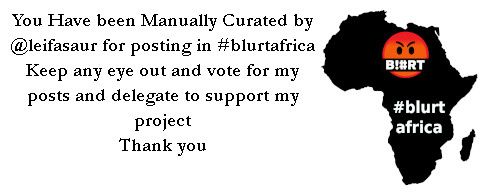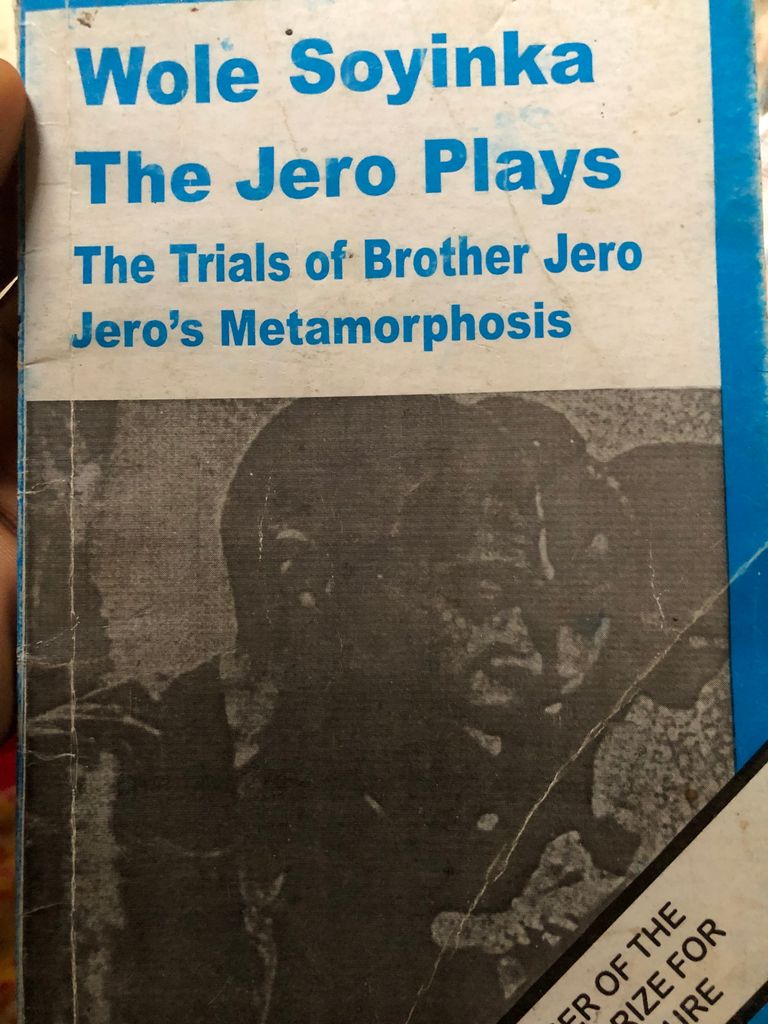
The tries of brother Jero is a prose book written by professor Wole Soyinka. Who is Professor Wole Soyinka? Akinwande Oluwole Babatunde Soyinka, known as Wole Soyinka, is a Nigerian playwright, novelist, poet, and essayist in the English language. He was awarded the 1986 Nobel Prize in Literature, for "in a wide cultural perspective and with poetic overtones fashioning the drama of existence."
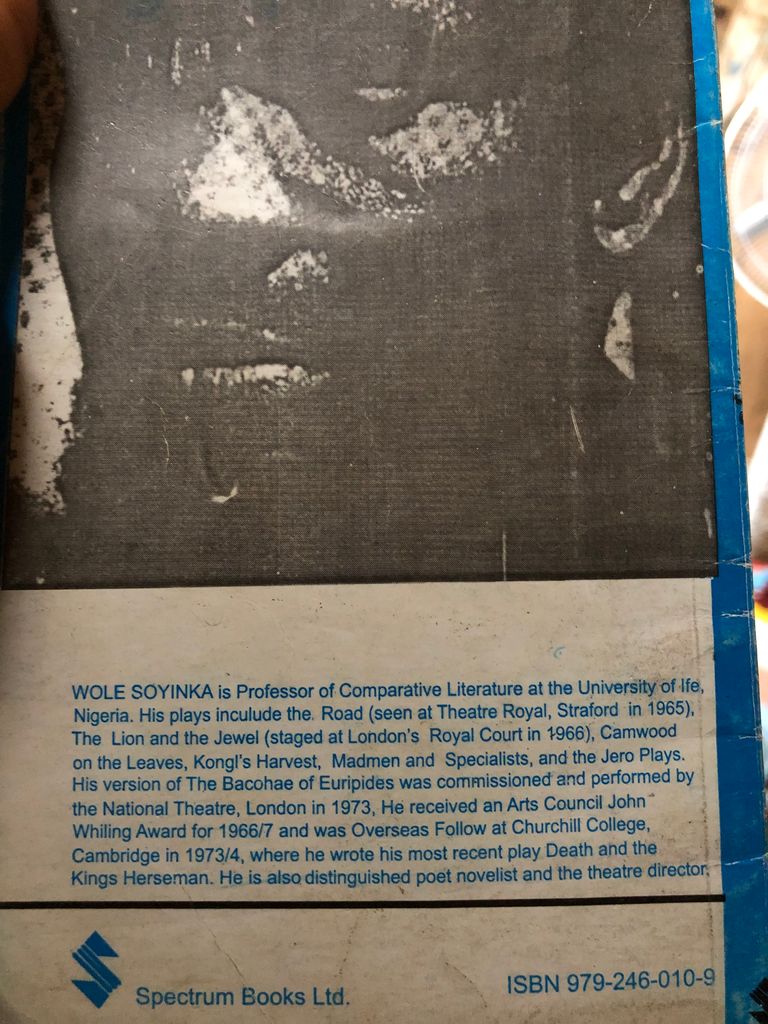
The Trials of Brother Jero is a light satiric comedy that aims at religious hypocrisy in the form of a charlatan, or fraud, named Brother Jero, who preaches to his followers on Bar Beach in Lagos, Nigeria. Jero is a master of manipulation and keeps his followers in a subservient position because he understands what they long for—money, social status, and power—and convinces them that they will soon be able to fulfil these materialistic desires. For their part, they are gullible enough to believe him. The vitality of the rogue Jero makes him a popular figure with audiences, and this play is one of the best-known and most frequently performed of Soyinka's early works.
The characters in the book areJeroboam (Brother Jero), a Beach Diviner; Old Prophet, his mentor; Chume, assistant to Jeroboam; Amope, his wife; a trader; the Penitent, a woman; the angry woman, a tough mamma; a young girl; a drummer boy; a man and an old couple.
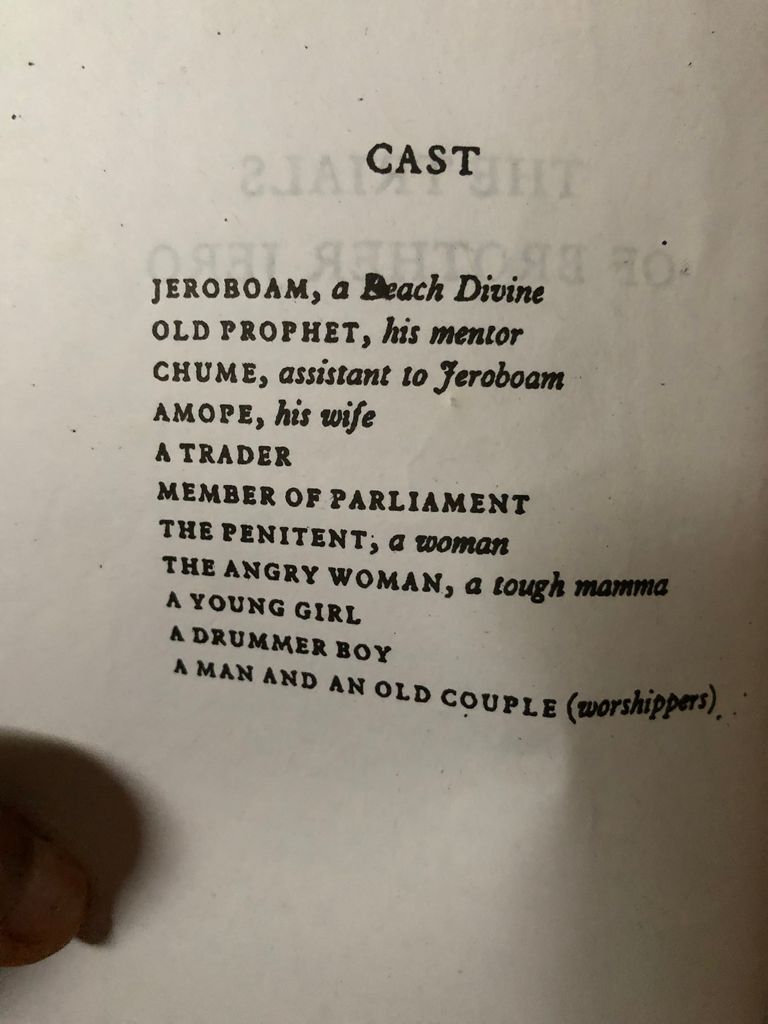
Brother Jero is the main character of the play and a false prophet. He is greedy and scheming but has a smooth, charismatic style and strong command of language that he uses to reel in new worshippers. Brother Jero owes money to Amope.
Amope is a market woman to whom Jero owes money. The Member of Parliament, who appears at the play's close, is a signal that Jero's trade is about to have more significant social consequences. The play adheres to the unities of time (one “rather eventful day” in Jero's life).
Scene one of the play begins with a single spotlight illuminating an otherwise dark stage. In the spotlight is the main character, Brother Jeroboam, who speaks directly to the audience. He identifies himself as a prophet, by which he means preacher. He has been a prophet for a long time, he says. His parents thought he was ideally suited to such a role because of his long, thick hair. He enjoys his work, which comes naturally to him.
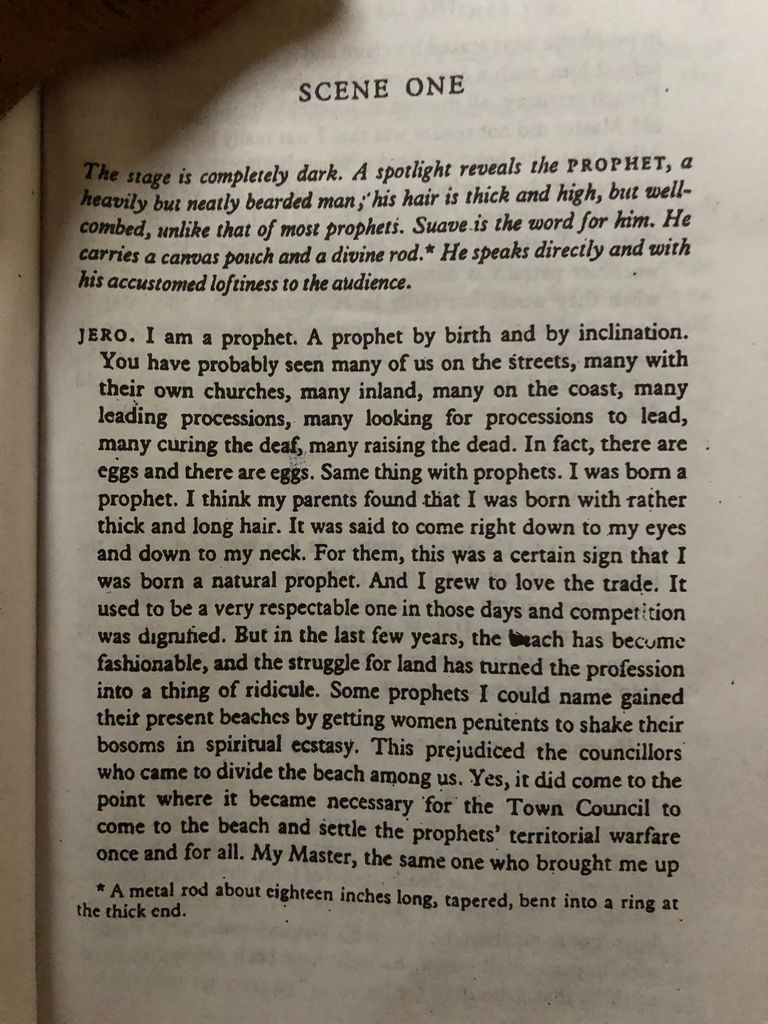
The play is a satirical attack on religious charlatans or frauds, like Brother Jero, who make a mockery of genuine religion. Jero appears to have no genuine faith at all.
No doubt he speaks to his congregation about the need for honest and upright living, but he buys a cloak from Amope and it appears he has no intention of paying for it.
At the beginning of the play in scene one, Jero quotes a proverb: "There are eggs and there are eggs. Same thing with prophets." He means that not all prophets are the same; some may be good, some bad, some may be genuine, and others are fakes. Jero well knows that he is a fake, but he feels no twinge of conscience about it. Although his followers are not shown giving him money, they probably do, since Jero refers to them as “customers”. He also refers to his religious calling as a "trade." In other words, Jero is running a business; he merely pretends to be communicating knowledge about the spiritual realm. He is a fraud, but a clever one and the audience is amused by his antics and his plots.
It is not only Jero who lacks spiritual values. No one else in the play has such values either. The people in the congregation want more material goods and greater success in the world rather than any spiritual salvation. The play, therefore, satirizes the materialism of the culture.
It was fun reading and summarizing😁. Thanks for reading the summary to the end❤️😊.
